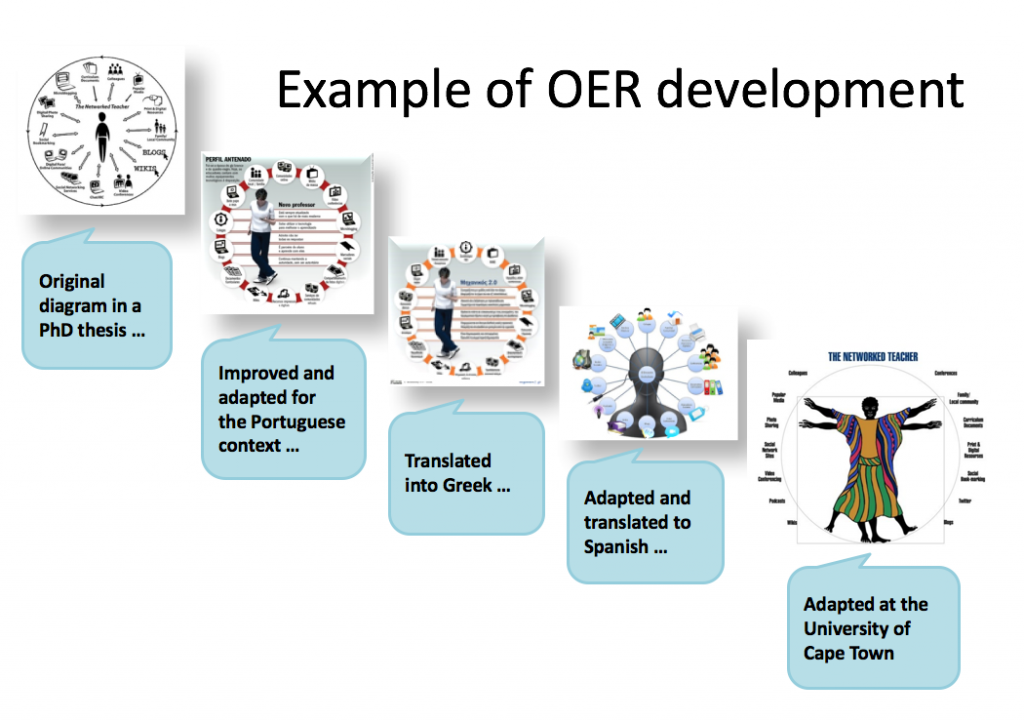Open Educational Resources, commonly referred to as OER, are important elements of open education. “Open” in Open Educational Resources refers to educational content that is freely shared (at no cost) and permits any user to make changes. The ability to modify the content is a key feature of OER, allowing people to customize it for their intended use, for example by adding or substituting examples or images, expanding on definitions, or combining multiple OER to create a multimedia resource, a course pack, or other set of enhanced resources.
The original author (or copyright holder) of the resource indicates their willingness for others to use and modify the resources by applying an open license. These licenses work with copyright laws to give users legal permission to use and/or modify a resource. For OER, the most commonly used open licenses are Creative Commons licenses.
Open Content is a term that is also frequently used to describe OER.
Learn More
- OER in Primary and Secondary schools: https://www.edutopia.org/open-educational-resources-guide
- Guidelines for Open Educational Resources in Higher Education, UNESCO: https://goo.gl/ecfN0a
- Open Educational Resources: Policy, Costs and Transformation by F. Miao, S. Mishra and R. McGreal, eds., 2016, openly licensed book available for download here: unesdoc.unesco.org/images/0024/002443/244365e.pdf
- Open Textbook Library: https://open.umn.edu/opentextbooks/
- BCcampus Open Textbook project: https://open.bccampus.ca/open-textbook-101/
- Open Textbook Alliance, including student action kit: http://opentextbookalliance.org/






